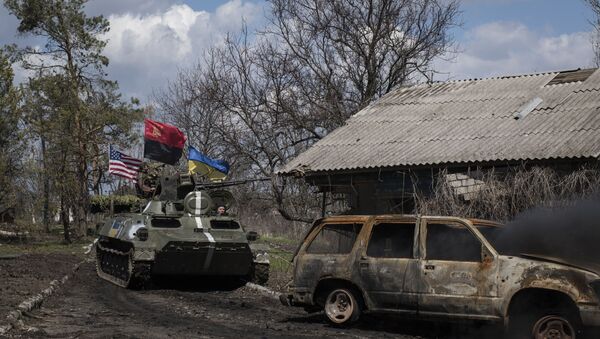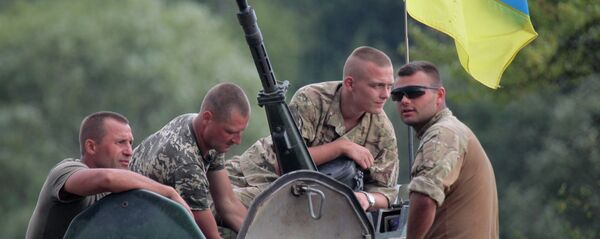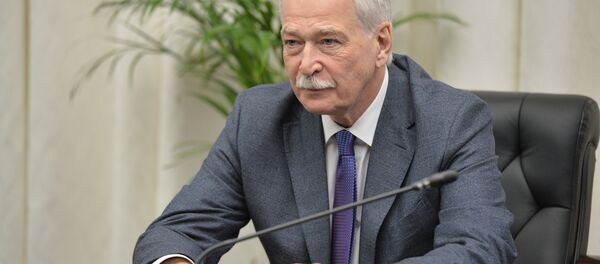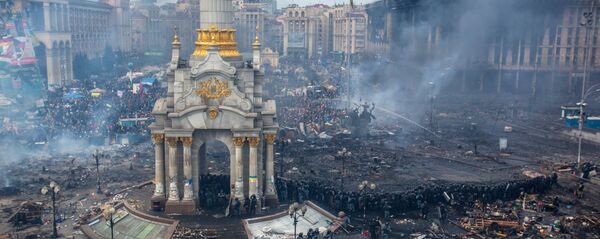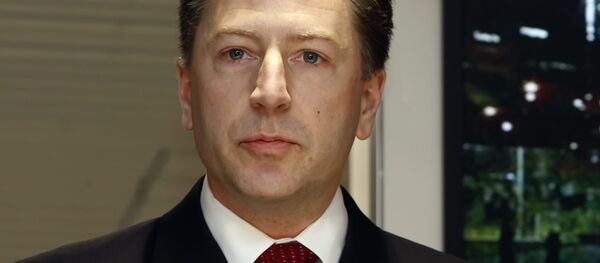The State Department delegation's visit to the Kiev-controlled portion of Donetsk Sunday included a stopover at the headquarters of the Ukrainian military's 'Donetsk' tactical group. US officials were briefed by senior Ukrainian commanders, including Lieut-Gen Alexander Lotoka, the commander of the so-called 'Antiterrorist Operation' in the Donetsk and Lugansk regions.
The US delegation also toured the war-torn town of Avdiyivka, where Volker spoke to local journalists about his findings and the purpose of his trip. The official said that his visit led him to conclude that the situation in eastern Ukraine "is not a frozen conflict," but "a hot war," and "an immediate crisis that we all need to address as quickly as possible."
Volker also confirmed that he saw the conflict in eastern Ukraine not as a civil war, but an act of 'Russian aggression.'
"We've seen what happened, we understand the way this conflict has begun, we understand the way it is being managed today," he noted. "That's why it is important that the United States become more engaged, and that we try to find a way to change the strategic perspective here so that different decisions are made, and we can move beyond where we are to see Ukraine's territory restored," the official added.
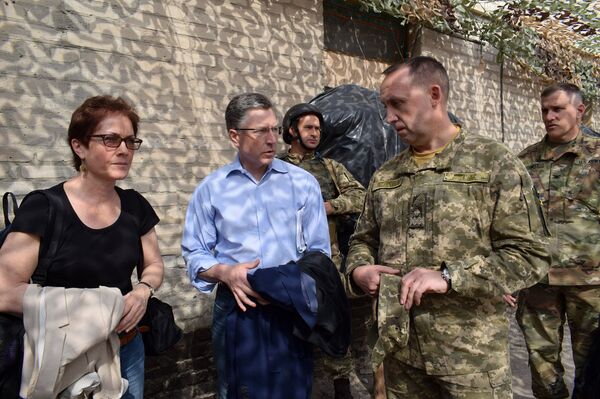
Russian observers were disappointed with Volker's rhetoric. Speaking to Radio Sputnik, political scientist Andrei Suzdaltsev said that Volker's Donbass visit could not exactly inspire confidence, since his comments were merely a continuation of the kinds of empty claims Washington has leveled against Moscow since Kiev sent the military into the Donbass in April 2014.
"For now, Volker has not made it to Moscow, and this is not a very good thing for the US position. This limits the long-term any agreements or compromises which can be made," the analyst stressed.
For his part, Crimean political scientist Ivan Mezyukho told Radio Sputnik that he was even more skeptical about the impact Volker's visit to the Donbass will have on peace in the region. The visit, he suggested, was merely another confirmation of Kiev's status as a US dependency.
As for the State Department delegation's visit to the 'Donetsk' tactical force's headquarters, Mezyukho suggested that this looked less like a diplomatic visit and more like "an audit on the use of funds allocated by Washington for the so-called 'Antiterrorist Operation' and the activities associated with it."
The observer added that he was concerned that Volker's Donbass visit may have been a 'fact-finding trip' to collect information for a new campaign to blame Russia for all of Ukraine's problems, including the civil war in the country's southeast. "This would not be the first time that they would do so," he said.
During his meeting with journalists in Avdiyivka, Volker said he would be meeting later this week with representatives of the Normandy Four countries (apart from Russia), as well as EU, NATO and OSCE officials, and diplomats from the UK, before returning to Washington to give his recommendations on the situation in the Donbass.
Volker was appointed as special envoy to Ukraine earlier this month, ostensibly in order to help negotiate an end to that country's three year civil war. Since then, American and Russian observers have voiced skepticism over the official's appointment, pointing to Volker's position as the head of the McCain Institute, a neo-conservative Washington-based think tank founded by fanatically anti-Russian Senator John McCain. Researchers also recalled Volker's work for BGR Group, a Washington-based lobbying firm hired by the Ukrainian government in late 2016 to lobby Kiev's interests in the Trump administration.
